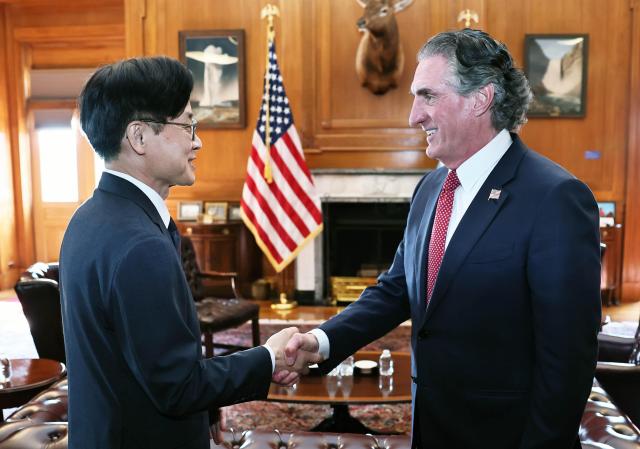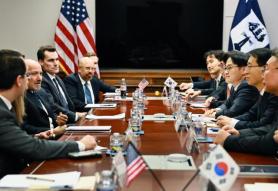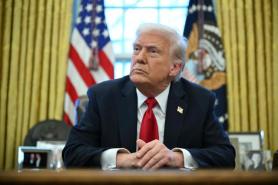
SEOUL, July 26 (AJP) - Korean Industry Minister Kim Jeong-kwan and U.S. Commerce Secretary Howard Lutnick concluded their second day of intensive trade negotiations Saturday at Lutnick's private residence in New York, according to trade sources Saturday. The talks followed Thursday's meeting at the Commerce Department in Washington as both sides work toward reaching an agreement before the August 1 deadline for reciprocal tariff implementation.
Kim presented revised proposals based on discussions from a trade strategy meeting held at the presidential office on Friday, offering more advanced positions than Thursday's initial negotiations. The Korean delegation reportedly made additional approaches on contentious issues including U.S. investment commitments and agricultural products such as beef and rice. However, sources indicated that Lutnick continued to demand greater concessions from South Korea despite the revised proposals.
Trade sources said the negotiation results require additional internal discussions, suggesting significant gaps remain between the two sides. Kim reported the outcome of Friday's additional talks with Lutnick to Seoul, and the presidential office is expected to hold another trade strategy meeting on Saturday chaired by the chief of staff to discuss Korea's response direction for achieving a tariff negotiation settlement.
Kim had originally been scheduled to return to Korea on Friday but may remain in the United States along with Trade Representative Yeo Han-gu to oversee intensive last-minute negotiations as the deadline approaches. The presidential office is considering having both officials stay to lead comprehensive U.S. negotiations given the time constraints and the need for continued high-level engagement.
Both countries are conducting intensive negotiations with the goal of reaching a trade agreement before August 1, when President Donald Trump's moratorium on reciprocal tariff implementation expires. The extended talks in New York demonstrate the urgency both sides feel to resolve outstanding trade issues, though significant differences appear to remain on key investment and agricultural market access commitments.
Copyright ⓒ Aju Press All rights reserved.




